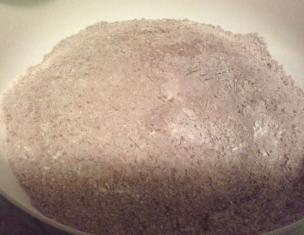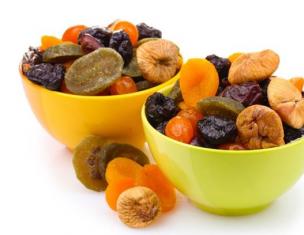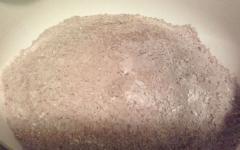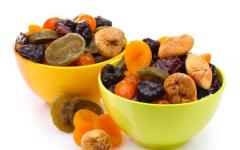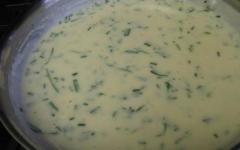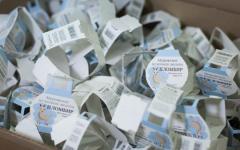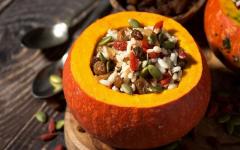How much salt should I put in 3 liters of soup? This question worries many novice cooks. In order to prevent cases of under-salting and over-salting, we suggest that you read this article and gain useful information for yourself.
I would like to immediately answer the question stated in the topic of the article. If salty foods were not added to the soup, such as sauerkraut, pickles, smoked meat, sausages, processed cheese, smoked fish and other products with salt, then the norm for 3 liters of soup will be 3 level teaspoons. This is approximately 23 grams.
The amount of this spice that is added to one or another type of first course is shown in the table below.
Required amount of salt in grams per liter of soup

All data in the table is for first courses made from unsalted foods. When preparing solyanka, cheese, pickle, the values are reduced by 1.5-2 times.
| Name | Water volume, l |
||||
| 1 | 2 | 3 | 4 | 5 | |
| Meat or fish | 6-10 | 12-20 | 18-30 | 24-40 | 30-50 |
| Lactic | 6 | 12 | 18 | 24 | 30 |
| Cream soup | 6-10 | 12-20 | 18-30 | 24-40 | 30-50 |
| Cold | 6 | 12 | 18 | 24 | 30 |
| Soup sauce | 10 | 20 | 30 | 40 | 50 |
Tip: if you salt the first dish at the end of cooking, the risk of oversalting is reduced. Add gradually, periodically tasting the broth.
Lack of salt can lead to souring. Read the article about other reasons for quick spoilage of first courses!
Daily salt intake for humans

Everything is needed in moderation. It’s better not to joke with this ingredient, because... the line between benefit and harm is thin.
According to the WHO - World Health Organization, it is recommended that adults consume no more than 5 grams of salt per day.
Norms for a child depending on age:
- 0-9 months - not added to food
- from 9 months to 3 years - it is recommended to consume up to 2 grams per day
- from 3 to 7 years - no more than 3 grams per day
- from 7 years - no more than 5 grams per day
Excess salty foods are harmful to the body and provoke various diseases of the kidneys and cardiovascular system.
However, so is the disadvantage. Deficiency leads to digestive system disorders, depression, anorexia, psychological and cardiovascular diseases.
Eat right and be healthy!
To make the broth rich, the meat should be filled with cold water. The broth is quickly brought to a boil and then simmered over low heat.
If you cook the broth over high heat, the meat will be tastier and the broth will not be as rich.
When cooking soup, after each addition of vegetables, quickly bring the soup to a boil and then reduce the heat.
Stir soups using slow circular movements. Only in this case the integrity of the vegetables in the soup is not compromised.
Do not add water to the broth; it greatly affects the taste of the broth. If it is necessary to add (too much salt or too little liquid), then use boiling water.
To prevent the soup or broth from losing its beautiful transparent color, always remove the bay leaf from the soup after cooking.
Any soup will be much tastier if, after cooking the soup, you let it brew for a little while.
Heat the broth over low heat, uncovered. This way it will better retain its transparency and taste.
When to salt soup
Salt the meat broth twenty minutes before the end of cooking.
Salt the fish broth at the beginning of cooking.
Salt mushroom soups at the very end of cooking.
How to cook delicious soup
The most delicious mushroom soup is made from porcini mushrooms, champignons or morels.
To make mushroom soup tasty and rich, it is better to use both large dried mushrooms and small ones. Large mushrooms give the broth a dark color and delicate taste, and small ones give it an aroma.
The borscht will be richer if you cook it from brisket.
A few minutes before the end of cooking, be sure to add chopped lettuce peppers to the borscht. Pepper adds vitamins to the dish and gives it a special taste.
The main ingredients of any pickle are pickled or canned cucumbers, cucumber pickle and sautéed vegetables. The remaining ingredients can be very different, depending on the name of the recipe and the chef’s idea.
If pearl barley is sautéed in oil rather than boiled, the pickle will turn out much tastier.
If the pickle is not spicy enough, add boiled cucumber pickle (pre-strained) to it.
To make pearl barley soup a beautiful color, first fry the pearl barley in butter.
If you add a tablespoon of sherry to the soup, the soup will turn out much tastier.
To make soup with noodles or noodles clear, first immerse the noodles in boiling water for a few seconds to wash off excess flour. And only after that they put the noodles into the soup or broth and cook until done.
If we cook fish soup, then put the fish in cold water and cook.
To give the soup a piquant taste, add half a fresh apple to it.
To make the broth a beautiful yellow-orange color, add a little fresh onion broth to it (cook the peel of one onion for 10 minutes in a small amount of liquid).
Puree soups can be prepared from one type of vegetable, or they can be cooked from several types of vegetables. In order not to “kill” the vegetable aroma of the soup, we add a minimum of spices.
As a rule, croutons are served with puree soup. The croutons will turn out much tastier if you sprinkle them with grated Dutch cheese before drying.
Cook any milk soups over low heat so that the milk does not burn. In this case, it is advisable to use a pan with a thick bottom.
When preparing milk soup with noodles, do not forget that all pasta cooks very poorly in milk. Therefore, we first boil vermicelli or noodles until half cooked in water, and only then finish cooking them in milk.
We first blanch white cabbage, Brussels sprouts or savoy cabbage for milk soup, and then cook it.
How to salt food correctly? The question is not idle. After all, like any spice, you can not only improve a dish, but also completely ruin it. My grandmother, Anna Nikolaevna, said: “You know how to salt, you know how to judge.” From time immemorial there have been culinary rules: when and how much to salt. Let's remember them.
Rule one
Any liquid or semi-liquid dishes prepared with water should be salted only then , when they are completely ready, because food absorbs salt more evenly at the end of cooking.
The meat broth is salted 20-30 minutes before the end of cooking, so it will become transparent.
Vegetable soups - 10 minutes before the end of cooking.
Mushroom broth - at the very end.
Legumes(beans, beans, lentils, peas) are salted after cooking. If you salt them at the beginning, they will cook for a very long time.
However, from this rule there is exceptions: If you cook cereals, pasta, vermicelli, dumplings, dumplings, dumplings, as well as fish, fish soup or vegetable broth, then you need to salt the water at the beginning of cooking. In this case, the water boils faster.
Rule two
Meat should be salted very moderately; it already contains various salts. The delicate taste of a meat dish and its pronounced smell are preserved only with moderate salt consumption.
If you stew meat, you need to salt it 10 minutes before cooking, otherwise it will be tough.
When frying, pieces of meat (langettes, entrecotes, escalopes) are salted only when a golden brown crust has formed on them (usually 3 minutes before the end of cooking, otherwise they will be dry).
Meat dishes cooked on a spit are salted just before the end of roasting.
The liver is fried unsalted, otherwise it turns out too tough.
Rule three
Fish (either boiled, fried, or stewed) you need to salt it generously.
To make fish with a soft consistency firmer, it needs to be salted an hour before frying.
If you are going to fry or stew fish, then it is better to salt and pepper it raw 10-15 minutes before cooking, then it will not fall apart during the frying process.
Fish for baking in the oven is salted 5-7 minutes before cooking.
Rule four
Potatoes are salted differently, depending on how they are prepared.
Boiled potatoes, peeled, are salted as soon as the water boils.
Jacket potatoes are salted at the very beginning of cooking (if salted at all).
It is better to salt fried potatoes when they are almost ready, otherwise the slices or strips into which the potatoes are cut will fall apart.
If potatoes are boiled for mashing, then they add salt at the end of cooking, then it will be tastier.
Rule five
When frying vegetables, salt is added at the very end, otherwise the vegetables turn out stewed.
When frying eggplants, salt the pan, not the vegetables themselves - this makes it almost impossible to over-salt them.
Raw salads are salted before serving, otherwise the juice will stand out, the taste will deteriorate, and the dish will be unappetizing.
As you can see, salting food is an art.
If you also know the rules of this art, tell us about them and remember that under-salting is on the table, over-salting is on the back.
Salt is an essential food additive that has long been present in the human gastronomic world. Despite modern contradictions between benefits and harms, it is rarely possible to completely eliminate it from the diet. It is almost impossible to prepare a delicious soup without salt, because it adds an interesting taste to the dish. But what to do if you over-salted the soup and how to salt it correctly to avoid this?
Unfortunately, there is no universal rule, since much depends on individual preferences. However, some general rules still exist:
- Most dishes are recommended to be salted at the last stage of cooking;
- Solyanka is salted in small quantities, since it contains salty components;
- Before testing the dish for salt, it must be cooled, otherwise it may seem less salty;
- When checking a soup for salt, just taste the broth;
- try the dish no more than twice, otherwise sensitivity to salt may become dulled and you won’t notice the saltiness;
- salt from different manufacturers may have different concentrations, so it is better to choose a specific brand and use only that one.
What to do if you over-salt your soup?
Depending on the type of soup, the method for solving the problem may differ. To avoid confusion, you can use the following recommendations:
- Soupwith vermicelli can be corrected by adding a bag of rice or flour for 10 minutes.
- What to do if you have over-salted cabbage soup, borscht, solyanka or tomato soup? Just add a small amount of lemon juice or apple cider vinegar.
- You can throw a handful of rice into the pickle or green cabbage soup or add a raw egg.
- Adding tomato paste or sour cream will help with the problem with any “red” soup.
- Lemon will perfectly correct fish soup and solyanka.
- Soup-Mashed potatoes can be saved by adding cream.
- Bean, chicken, mushroom or pea soup will be improved by adding a raw egg.
- The excess salt will be absorbed by the peeled potatoes. If the first dish is thick enough, the “auxiliary” potatoes can be removed and used as a side dish or added to a salad. In empty soup, you can simply mash the potatoes and leave them.
- Cereals such as rice, buckwheat or millet absorb salt perfectly. The cereal must be wrapped in gauze and placed in a pan. The bundle can remain there until completely cooked.
- Chicken eggs are great for fixing heavily salted fish soup or other fish dishes. The egg is broken into a bowl, mixed and carefully poured into the soup. What to do if a liquid dish with boiled eggs is not eaten in the family? You can simply remove them with a slotted spoon before serving.
- Instead of cereal, you can add wheat flour, wrapped in clean gauze or cloth, to a pan with over-salted soup. After some time, the bag is removed. The disadvantage of this method is the appearance of turbidity in the broth.
How to properly salt various dishes
Different dishes require different amounts of salt, but at what stage should food be salted and in what amount?
Soups
It is better to salt the soup when all its components are cooked. In a three-liter saucepan, 3 teaspoons of salt are enough.
Meat
The meat does not require much salt because it is not completely bland. This is what causes problems during cooking. A teaspoon of salt is needed per kilogram of steak cooked over an open fire; half a teaspoon is added per kilogram of baked meat. How much salt do you need per kg of minced meat? Half a teaspoon is enough.
Fish
Fish is not salted like other products. Before you start cooking, you need to rub it with salt. Per kilogram you need 3 teaspoons. When it comes to preparing fish soup, it is better to add 4 tablespoons, since some of the salt will be absorbed by other ingredients. Fish dishes are salted before cooking.
Vegetables
Salt gives vegetables juiciness. It is better to salt them towards the end of cooking, otherwise they may become tougher. When frying eggplants, it is necessary to salt the oil used for cooking. There is no need to salt the fruit itself. Boiled potatoes are salted 15 minutes after boiling. A teaspoon of salt is enough for a kilogram of potatoes.
Pasta and dumplings
Any dishes made from unleavened dough that are cooked with broth or water must be salted while the liquid is boiling. It is from the broth that the dish will absorb the required amount of salt. For pasta you need 1 teaspoon per liter of water, for dumplings or dumplings - half a spoon.
Sweet pastries
Sweet baked goods are salted to emphasize the sweetness and airiness of the dough. For sweet dough, one pinch per kilogram is enough, and for yeast dough, two. A teaspoon of salt is added per kilogram of puff pastry prepared with an oil base.
How to save dishes from excess salt
There are methods that will help you cope with the problem using products.
What to do if you oversalt your meat or fish?
Over-salting meat is a complex problem that requires some sacrifices: the taste of the dish will most likely suffer, but you will still be able to save it from the trash. The meat must be removed and washed in cold water. After this, it is kept on fire for some time.
Grilled, lightly salted fish can be treated with the addition of lemon juice.
What to do if you over-salt your mashed potatoes?
In this case, adding some unsalted mashed potatoes helps. If this option is not suitable, then you can use butter. Many people like potatoes with the addition of butter, which adds tenderness, mutes the salty taste and makes the mashed potatoes thicker.
How to fix rice?
The most suitable method in this case is to rinse with plenty of cool water. The lower the water temperature, the better the end result will be. Washed rice will become more attractive and will get rid of excess salt.
Correcting over-salted porridge, buckwheat and other cereals
If the porridge was prepared with milk, then you can get rid of the over-salting by adding a small amount more. Otherwise, it is better to use peeled raw potatoes, which will absorb excess salt.
How to avoid oversalting
There are several small tricks that will help you avoid repeating mistakes in the future:
- taste food while cooking, but not too often, once or twice is enough;
- study the components of the dish in advance for the salt content;
- remember: you can always add salt to taste, but it’s less common to save soup and other dishes from over-salting!



